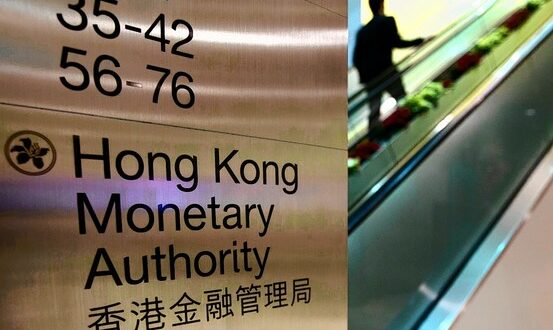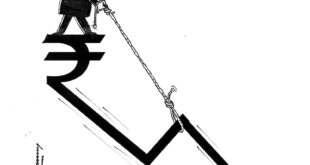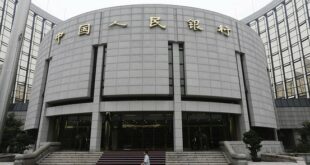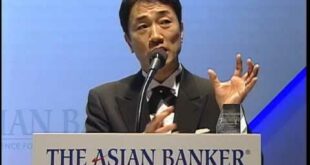Financial regulators across Asia are tightening oversight of how key interest rates are set and cracking down on signs of corruption, as a widening investigation into the banking industry world-wide unearths more evidence of systematic rate rigging.
In Hong Kong, the Hong Kong Monetary Authority has stripped a banking-industry group of control and is phasing out some versions of the benchmark Hong Kong interbank offered rate, known as Hibor. Regulators in Japan and Singapore are continuing investigations into possible abuses of how local interbank rates are set.
The efforts come amid a sprawling investigation into rates tied to trillions of dollars in mortgages and other financial contracts that has snared traders and executives around the world. Three banks have already agreed to penalties with regulators, most recently Royal Bank of Scotland Group RBS.LN -2.69% PLC’s agreement on Wednesday to pay more than $610 million in fines to settle interest-rate rigging charges with U.S. and U.K. authorities. The bank’s Japanese securities unit will plead guilty to U.S. fraud charges.
More than a dozen banks and brokerage firms remain under scrutiny.
Even so, Asian regulators have been relatively slow to take measures to bolster surveillance of rate setting, preferring to wait until the International Organization of Securities Commissions publishes guidelines on the matter, according to people lobbying the regulators to change procedures. An IOSCO spokesman in Madrid said the organization expects to publish a final report by April.
Asia’s financial markets are smaller and less liquid than those in the U.S. and Europe. Concerns about any attempt to manipulate local benchmarks haven’t grabbed attention until recently, often when problems were revealed through probes elsewhere.
However, the region’s regulators are mindful that confidence in the London interbank offered rate, or Libor, has been drastically undermined by the scandal and could spill over to local benchmarks. Libor, like Hibor, is based on submissions from a panel of banks and covers a range of maturities.
“Many banks have already changed their benchmark indices for valuing derivatives to ones not set by their peers, because Libor is no longer seen as reliable,” said Yuri Yoshida, director of Financial Institutions Ratings at Standard & Poor’s in Tokyo.
In Tokyo, the Financial Services Agency will likely issue sanctions against RBS for lax compliance in coming months, according to people close to the issue. That could involve anything from an order to improve operations to suspension of part of RBS’s Japanese trading operations, based on past disciplinary action at other banks.
An RBS spokesman in Hong Kong said the bank is continuing to cooperate with the Japanese FSA. The bank last summer pulled out of the panel that sets Tibor, the yen-denominated Tokyo interbank offered rate.
There have been no moves to strip the Japanese Bankers’ Association of oversight of rate setting, however. The JBA regularly reviews and appoints banks that help set Tibor.
The Monetary Authority of Singapore is engaged in its own investigation into possible abuses in setting Sibor, the Singapore interbank offered rate, as well as several benchmark exchange rates set by banks. Several banks have put currency traders on leave in the city-state as they conduct internal probes.
Like Hibor and Libor, Sibor is set via a survey of quotes from banks.
An MAS spokesman declined to comment Thursday on the latest moves by U.S., U.K. and Hong Kong regulators.
Malaysia’s central bank last month ordered domestic banks to only use a reference rate that is set onshore to price foreign-exchange contracts involving the Malaysian ringgit, instead of a daily exchange rate set by a panel of banks in Singapore. That came after Singapore’s financial regulator launched an investigation into whether currency traders in the city-state tried to manipulate the rate.
Hong Kong’s central bank said Wednesday it is removing supervisory powers from the Hong Kong Association of Banks and giving it to the Treasury Markets Association, a group led by the HKMA’s deputy chief executive, a move it says will enhance the credibility of the Hibor fixing.
It also said it will phase out rates with little market demand.
Unlike the Hong Kong Association of Banks, which represents only banks, the TMA also includes regulators, an HKMA spokeswoman said. She called the moves “preventative steps.”
“The HKMA package of measures is clearly designed to steady the ship in terms of any doubts there may be as regards rate setting in Hong Kong,” said Alan Ewins, a partner at law firm Allen & Overy in Hong Kong, whose responsibilities includes advising banks on regulatory investigations.
In December, HKMA said it was investigating whether UBS AG tried to rig Hibor after it received information from overseas regulators about possible misconduct.
UBS spokesman Mark Panday said Thursday that the Swiss bank was cooperating with regulators, but declined to give details.
RBS is no longer on the Hibor panel.
HKMA’s move follows a recommendation by Britain’s Financial Services Authority in September to strip the British Bankers’ Association, an industry group, of oversight of the widely used Libor rate.
The FSA’s Martin Wheatley, who made the recommendations, used to head Hong Kong’s financial regulator, the Securities and Futures Commission. He also is taking a leading role in drawing up IOSCO’s guidelines on the matter.
Some bankers who routinely lobby regulators said Mr. Wheatley’s recommendations were viewed as the gold standard on rates supervision by other regulatory bodies.
HKMA’s efforts are “designed to demonstrate Hong Kong’s adherence to international developments and standards, coupled with a desire to show strong controls in what is a sensitive area,” Mr. Ewins said.
WSJ
 Asia Finance News Asia finance news, banking, market analysis, business, Forex, trade, Cryptocurrency as it is happening in Asia. Trusted gateway for Asian financial news.
Asia Finance News Asia finance news, banking, market analysis, business, Forex, trade, Cryptocurrency as it is happening in Asia. Trusted gateway for Asian financial news.





